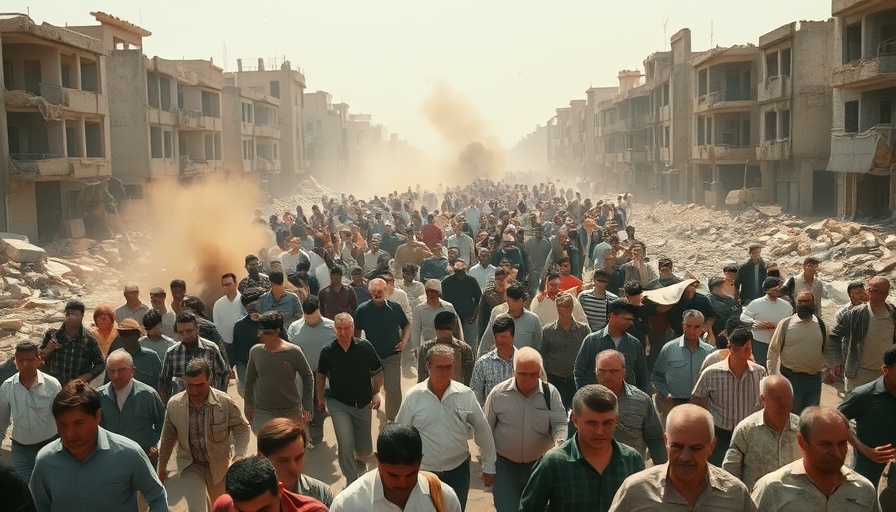
A New Impasse in the Gaza Ceasefire Talks
Recent reports from ongoing ceasefire discussions between Israel and Palestinian factions signal a significant stall. A pivotal issue arises regarding the Israeli military's withdrawal from Gaza—a demand set by Palestinian leaders which has proven to be a major sticking point in negotiations. This development is crucial for various stakeholders across the globe, especially amongst those who support peace and humanitarian efforts in the region.
The Current Situation
As diplomatic channels continue to operate, both sides seem entrenched in their positions. Israeli representatives emphasize security concerns and the need to ensure stability for their citizens post-withdrawal. On the other hand, Palestinian factions are adamant that any agreements must include a clear timeline for Israel's exit, as well as assurances regarding humanitarian access to Gaza. Such conditions are non-negotiable for them, given the historical context of conflict and mistrust.
The Historical Context: Layers of Conflict
Understanding the present impasse requires knowledge of the historical backdrop of the Israeli-Palestinian conflict. This nearly 75-year struggle for land, rights, and recognition has left deep scars on both sides. Ceasefire agreements have been repeatedly proposed and broken, creating skepticism among the populations. Every attempt at peace has underscored the complexities of national identity, faith, and historical grievances.
Global Implications: Why This Matters
This round of negotiations is not just a local issue; it resonates across the globe, particularly within global Christian communities that advocate for peace and justice. The hope is that a resolution could pave the way for increased interfaith dialogue and a greater understanding of shared values. For mission-minded individuals, the outcome may influence how humanitarian resources are allocated and how support for the oppressed is mobilized.
Faith and Politics: A Tangled Web
Many Christians, particularly those deeply engaged in social justice advocacy, grapple with the challenging intersection of faith and politics in the Middle East. The implications of a sustained conflict affect not only the people directly involved but also reshape narratives heard in churches worldwide. The very core of Christian mission calls upon believers to support those who are marginalized, making the outcome of ceasefire talks crucial.
Predicting Outcomes: A Look Ahead
Looking forward, analysts speculate that unless both parties can find common ground, the cycle of violence may continue, leading to further humanitarian crises. The international community's role may become even more pivotal in facilitating discussions. Faith-based leaders can play a significant role by encouraging prayer and action aimed at reconciliation and lasting peace.
Getting Involved: Support and Advocacy
For Christians invested in this matter, there are practical steps to take. Engaging with organizations that focus on peacebuilding and humanitarian aid in Israel and Palestine can amplify voices that strive for resolution. Interfaith dialogues and educational initiatives can nurture understanding and compassion between communities.
Conclusion: The Call for Peace
As ceasefire talks come to a halt due to the Israeli withdrawal issue, the need for continued global engagement remains critical. Encouraging prayer and action towards peace is essential, as followers of Christ are called to support efforts that uplift the marginalized and promote justice. It is through these efforts that a brighter future for the people of the region can be envisioned.
Join us in advocating for peace and supporting humanitarian work in the Holy Land. Together, we can foster hope and healing in these tumultuous times.
 Add Row
Add Row  Add
Add 








Write A Comment